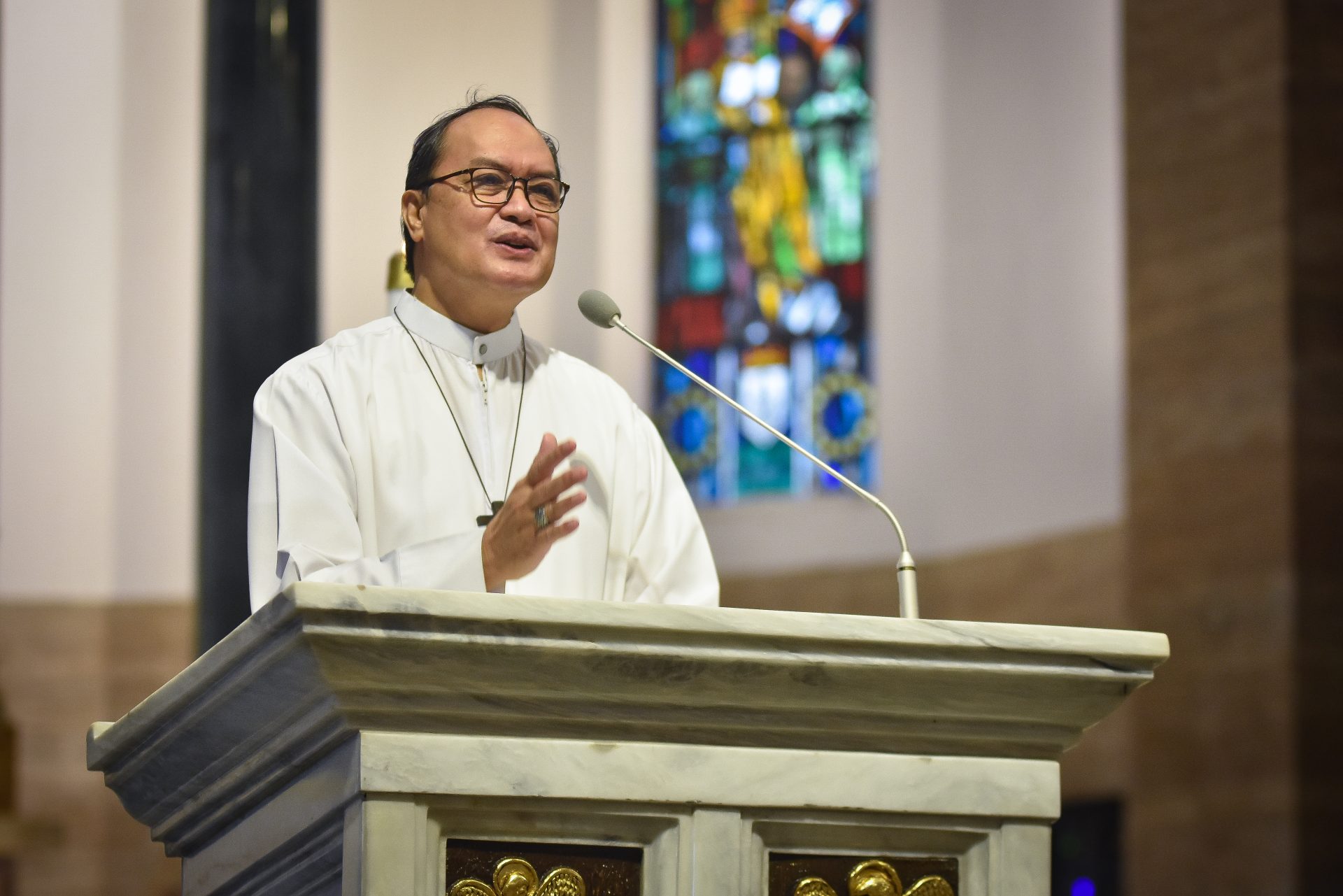The head of the Catholic Bishops’ Conference of the Philippines (CBCP) admitted that the poor remained marginalized even in the Church.
“It has been very humbling to admit that in spite of [the Second Plenary Council of the Philippines in 1991] vision of promoting a Church of the poor … the poor have remained not only in the margins of society but also in the margins of the Church,” said Bishop Pablo Virgilio David of Kalookan, CBCP president.
In a talk delivered at the Manila Cathedral on Monday, September 26, the prelate said the “most common” and “painful remark” that was generated during the synodal process was the “general impression that the poor felt discriminated against in their parishes.”
“Many priests and lay leaders have tended to be more welcoming toward the wealthy and the influential …. (The) even more painful was the common remark that many Church leaders, clerics or lay, do not bother to listen to their voices,” said Bishop David.
In 2021, Pope Francis formally opened a two-year process called “a synod on synodality,” officially known as the “Synod 2021-2023: For a Synodal Church.”
The process involves an expansion of an established institution, called the “Synod of Bishops,” with Church leaders around the world consulting with everyone before coming together for a discussion in 2023.
Bishop David said the sectoral dialogues during the synodal process in the Philippines also revealed “a great tendency” that many parishes focus only on “churchy” concerns.
“We have tended to limit the church involvement of the laity to serving the Church rather than serving society as members of a servant Church,” he said.
Bishop David’s talk was part of the 50th anniversary celebration of the Federation of Asian Bishops’ Conferences (FABC), which the prelate said “has actually been promoting greater synodality in the Church since its very inception.”
He said the FABC has insisted consistently on a three-fold dialogue — with religions, culture, and the poor — that the Philippine Church must examine “how we have faired” while reviewing the synodal experience.
Bishop David said it is ironic that the Philippine Catholic Church is at a disadvantage as regards inter-religious dialogue because of the “fact that we are a predominantly Christian country.”
“[It] is precisely the reason why we have the tendency to be less concerned about (dialogue) with other religions,” he said.
The prelate said other communities of faith were surprised “when we bothered to reach out to them” during the synod on synodality.
“Synodality with other religions is actually more than peaceful co-existence or even more than dialogue,” he said.
“It is also about proactively discovering spaces of partnerships and collaboration about opening our basic ecclesial communities to promote not just basic Christian communities but basic human communities,” said Bishop David.







